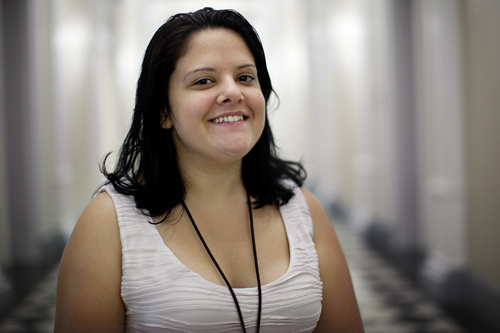

As a young woman with Cerebral Palsy, I learned at a young age that if I let my disability stop me from reaching my goals, I would be promoting a common misconception that disability is equal to inability. So, when I was offered an internship at the White House working for Kareem Dale doing outreach this summer, I could not let the opportunity pass. I had no idea what my internship would entail, how I would manage my expenses, and most importantly, if this new city would be accessible, but when I got to Washington, what I saw inspired me.
Each day, whether I'm trying to get a seat on the metro, ride an elevator, or cross a busy street on my way to work, I see people from the disability community going places and accomplishing things that would not be possible without the standards that have been set by the Americans with Disabilities Act (ADA). It's amazing to think that just over two decades ago, society put up barriers that prevented people like me from riding a bus, driving a car or doing the things that many take for granted every day.
Today, people with disabilities have access to resources that make it possible for their talents to be recognized and their opinions to be heard.
Modern regulations in the workplace ensure we are shown the same respect as our colleagues who don't live with disabilities. Prior to 1990, reasonable accommodations in the workplace were hard to come by, and acts of discrimination towards people with disabilities were all too common. For me, the ADA means the difference between a future full of obstacles, and one that knows no limits. The ADA has allowed me to succeed in a workplace where in the past I might not otherwise have been able to walk through the front door due to inaccessibility.
This week, as we celebrate the 21st anniversary of the ADA, I reflect on all that the disability community has accomplished in the past two decades. I acknowledge the improvements that have been made in the areas of transportation, employment and civil rights for people with disabilities, and I pay reverence to the extraordinary people before me who advocated for years so that I can live a life I will be proud of. While we should never forget the progress we have made in the last 21 years, we must also acknowledge the strides we have yet to make. I hope that in the next 21 years we continue to improve the employment rate for people with disabilities, and strengthen the influence of universal design in future architecture. I am honored to celebrate this milestone with young people who share my enthusiasm.
Krista Simeone is an Intern at the White House Office of Public Engagement from Queens, New York.

